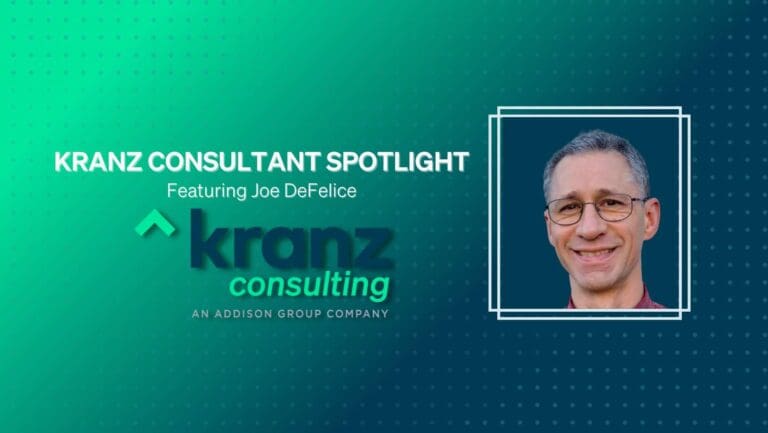
We are thrilled to highlight our Controller, Joe DeFelice. Read the full interview to learn more about Joe’s expertise, his passion for his work, and how he helps his clients thrive.
What is your hometown? Pittsburgh, Pennsylvania
What is your alma mater? Carnegie Mellon University
What are your favorite things to do outside the office? I enjoy local cultural events (music, musical theater, etc). I’ve also been practicing a Japanese martial art, shorinji kempo, for many years.
How has your background impacted your experience as a consultant? After a short stint in public accounting, I spent the majority of my career prior to Kranz working at VC and PE-backed startups. During that time, I often hired consultants, some of which were from Kranz. I am hopeful that my previous experience provides me with a good sense of how to add value to those types of clients, and by extension, other types as well.
As part of a team that works 100% virtually, what technology or collaboration tools do you use to make your work life easier? The usual messaging, email, and video apps. However, I try to look at things from the point of view of the client and what’s best for them. I try very hard to adapt to their organizational norms to decrease any friction and provide the best service for them.
What kind of work have you been doing? I’ve done quite a bit of interim controller work, filling in for people who have left the client’s organization for various reasons and often without a great deal of notice. In that role, I’m often responsible for the areas of work you’d typically expect from a controller: financial operations, closing the books, the annual audit, etc. I’ve also done some budgeting and modeling work, which I find very interesting. In my pre-Kranz life, I often worked side-by-side with many great FP&A people, so it felt like a natural extension to be able to provide that work to clients as well.
What’s your process like? When given a new client, I try to look at the situation objectively and determine how my time would be best used for them to add value. Sometimes what they think is critical may be less so, and other things they’ve not noticed may be more important to focus on first. I try to highlight this information for them and take their direction into account. I always try to consider whether the work I’m doing or will be asked to do is the best plan for them, versus, for example, reallocating things or delaying parts of it until a permanent team is ready to take it on. This way, I can ensure my work and the services we provide are in line with the highest priority needs.
